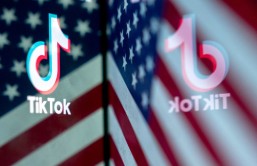Facebook and Princeton University are battling over research findings.
Last week, a study was published suggesting that the social networking site Facebook could lose 80 percent of its users by the year 2017.
The researchers from the Princeton University based their analysis on epidemiological models, which are usually used to show the spread of an illness. They also compared the social networking site to MySpace. The latter flourished in 2003 before it was overtaken by Facebook in 2008.
The researchers wrote that their study "suggests that Facebook has already reached the peak of its popularity and has entered a decline phase." The study has not yet been peer-reviewed.
Though Facebook admitted a decline in the number of teenage users last December, it defended itself against the research through a more playful tack.
Mike Develin, a data scientist at Facebook, stated in a blog post, "Using the same robust methodology featured in the paper, we attempted to find out more about this 'Princeton University' -- and you won't believe what we found!"
According to Develin, Facebook and Google made a joint analysis and found that "Princeton will have only half its current enrollment by 2018, and by 2021 it will have no students at all, agreeing with the previous graph of scholarly scholarliness. Based on our robust scientific analysis, future generations will only be able to imagine this now-rubble institution that once walked this earth."
"Although this research has not yet been peer-reviewed, every Like for this post counts as a peer review. Start reviewing!" he added.
Slate writer Will Oremus criticized Princeton's report. He said to CNN, "It's an old journalistic trick: Just add the words 'research' or 'study' to a sensational claim for instant credibility. Best of all, you're absolved of any responsibility for verifying its truth, since everyone knows journalists aren't qualified to dispute scientific findings."








